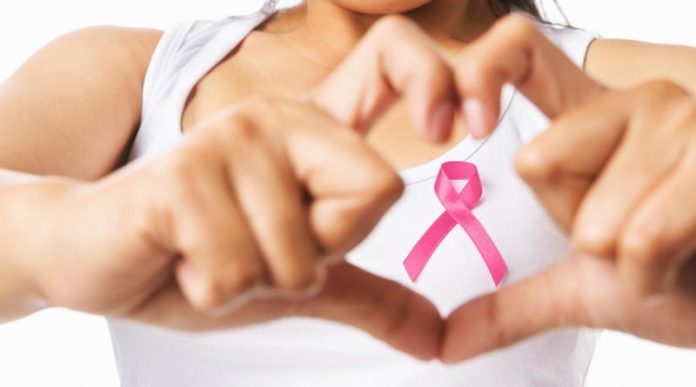With its long and devastating history, breast cancer has earned its badges in new arenas – even coining new words for itself, like psychosocial aspects of breast cancer and psycho-oncology. Clearly, there are aspects of cancer that go beyond the diagnosis and treatment and move into a more holistic arena, which includes, lifestyle, psychology, social adjustment and the personal mindset of the one diagnosed. In this now well traversed playing field, alternative medicine has proven invaluable.
Signs And Symptoms Of Breast Cancer
To have reached the point of a positive diagnosis, a long path has already been trodden from the day a lump was discovered till the day of the awful news. Routine mammograms raise the odds of catching and treating breast cancer at the first onset. However, routine mammograms offer a small risk in increasing the risk of developing breast cancer, due to X-Ray radiation exposure. A small percentage of mammograms also give false negative and false positive results. Some women prefer to have routine breast ultrasounds (sonars) together with thermograms of the breasts (infrared scans) which are less invasive, cause no pain and do not increase the risk for breast cancer development. If a suspicious lump is detected a biopsy with or without a mammogram can be done. Still, it’s not only a lump that’s a giveaway. We honestly need to know our bodies very well, especially the feel and appearance of our best pair of assets – here’s a list of other indicators not to be ignored:
- Change in shape and size – especially if it’s just one breast
- Changes in the nipple – flattening and /or pulling in
- A dimple on the breast surface
- Orange-skin appearance – breasts look dimpled
- Hot or red breasts – check it out before fobbing it off
- Nipple crust – scab-like white or red crusty surface that doesn’t go away
Holding Onto Femininity In The Face Of Breast Cancer
It has well been said that a woman’s glory is her hair and there’s no denying that beautiful breasts particularly define all women. The threat that a breast cancer diagnosis delivers to these two areas so intrinsic to femininity is immense. Not only is a woman faced with losing such definitive aspects of herself, but she well knows how it will also affect her partner’s view of her at the very time that spousal support needs to be at its best. Navigating these turbulent waters will test every aspect of our personality.
With alternative health solutions, we do at least get to ‘keep our hair on’ and very likely, we may end up successfully holding on to what’s so near and dear to our hearts – our breasts!
Keeping It All Together
Because breast cancer has such a devastating psychological impact on the sufferer and their loved ones, it makes sense to arrive at a way to deal with the new circumstance a cancer diagnosis brings to our life. When it comes to circumstance, life is unpredictable. With one phone call, that one breast cancer diagnosis, everything we knew changed in an instant. That reality will be doubly devastating if we have never cleared the way in our minds for how to handle things we cannot control and how to be proactive about what we can. “Do all we can and ‘can’ what we can’t” could be a helpful motto to hold to on the rocky path breast cancer brings us to.
Among the thousands of breast cancer survivor stories, here are two ways of thinking not so frequently canvassed:
- The first is to avoid clinging to what is impermanent. If we insist that standing on a rug is stable, then what happens when someone or something pulls it out from under us? A rhetorical question with an obvious answer – but now apply that to a health situation. Are we permanently young, or healthy or even wealthy, for that matter? Then we need an outlook that can support that reality. Facing a health challenge need not diminish who we are as a person, breast cancer is a circumstance we are dealing with, it does not define us – unless we allow it to.
- The second is to let go of outcomes. Yes, this is hard. We have breast cancer and we are hoping for a cure, or remission at least. Understanding that the body is a marvellous self-perpetuating, self-healing organism means what it delivers for us to deal with will always be matched by an innate ability to manage it, including something as big as breast cancer. The problem arises when we have bought into negative ways of looking at things. There is nothing ‘fair’ about having a cancer diagnosis, if, for example, we imagined life was supposed to treat us fairly we will have an additional attitude to overcome before the body can co-operate with our healing assistance. Once we’re ok with whatever the outcome is, we create the dynamic needed for the unexpected.
Common Causes of Breast Cancer
- Inherited breast cancer gene (DNA mutation passed on from mother to daughter or granddaughter)
- Random genetic mutation caused by damage to DNA from toxic chemicals, or radiation, or smoking.
- Hormone imbalance and cell metabolism disruption from too much estrogen, or hormone-disrupting chemicals like pesticides and insecticides and plastic compounds which have an estrogenic effect.
No one is suggesting that dealing with breast cancer is a walk in the park but we are the masters of our responses to what life may dish up our way. What we dwell on is within our power to direct and that will have either a positive or negative impact on our well-being, with or without breast cancer as a health challenge.
Breast Cancer Treatment Options – Conventional or Alternative or Integrative?
There are multiple approaches to breast cancer treatment. Even within mainstream (conventional) medicine, treatment protocols may differ from surgeon to surgeon or oncologist to oncologist.
Treatment also depends on the staging of the cancer and what was once considered as breast cancer in situ (DCIS) and treated aggressively with surgery and, or chemotherapy, is now seen as abnormal breast tissue but not necessarily full-blown aggressive cancer.
Other important considerations are if the cancer is linked to a cancer-causing gene (Her2 or BRCA) or if the cancer cells have estrogen and, or, progesterone positive receptors. Age, pregnancy, menopause, obesity, smoking, alcohol and other medical diseases all play an important role with respect to treatment and recovery.
Conventional medicine favours surgery, chemotherapy, radiation and hormone blockade therapy e.g. with Tamoxifen. Integrative medicine favours surgery with viro-immunotherapy, hormone blockade with natural estrogen blockers or pharmaceutical, as well as an anti-cancer diet, immune system enhancers, intravenous nutrients and food supplements.















